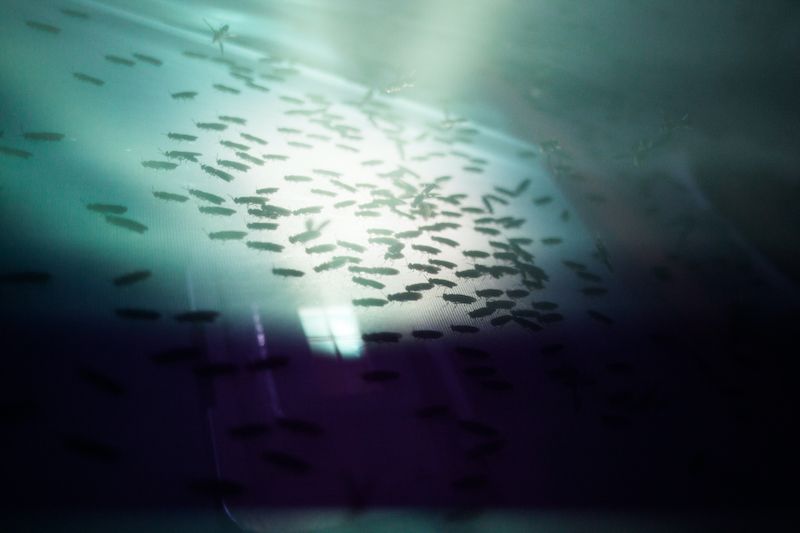In the same week that French insect farming startup Ÿnsect netted its massive $372 million Series C, the UK government’s Industrial Strategy Challenge Fund (ISCF) has earmarked a more modest £10 million ($12.9 million) to help build the country’s first large-scale industrial insect farm.
Tasked with leading the project is London-based startup Entocycle, which will aim to build a facility that rears insects by the million. The plan is for these tiny livestock to feed on and break down food waste, in turn becoming animal feed for the aquaculture and pet food industries.
Working alongside Entocycle are other UK insect companies like Better Origin — a designer of distributed insect mini-farms — and Beta Bugs, which breeds arthropods with optimal traits for farming. Other businesses, research institutions, and ‘entopreneurs’ joining the project include retail giant Tesco; agribusiness AB Agri; Insect Technology Group; Zero Waste Scotland; and the universities of Durham, Stirling, and Warwick.
While Ÿnsect has been extolling the virtues of mealworms, the UK now seems more intrigued by another species.
“Our aim is to make the UK a global hub for black soldier fly farming,” said Katrina Hayter, ISCF director at UK Research & Innovation (UKRI), in a statement.
Why the flies? The thinking is that these insects have two key benefits. First, farming them can reduce the CO2 emissions and other environmental side-effects related to sourcing and producing traditional protein feeds. Second, black soldier fly production can help the UK improve its food security in the future through a more localized supply chain for animal feed.
Like other recent allocations, this project is geared to accelerate the development of sustainable food production. Granted, that aim is to be applauded. But the sums involved are minor, especially when set against Ÿnsect’s $372 million Series C round. ‘Global hubs’ don’t get made with a few million dollars here and there.
Insects, yes. But what about wheat?
Further criticism comes from wheat farmers, several of whom see capital-intensive, moonshot insect experiments as mere grandstanding from the UK government at a time when things are already going wrong with tried and tested staple crops.
The country is suffering from its worst grain harvest in 40 years, a deterioration which could see bread prices surge amid already fraught economic conditions due to the Covid-19 pandemic and the as-yet unsettled matter of post-Brexit trading relations with the EU.
Wheat farmers that AFN spoke to on background bemoaned the government’s track record, arguing that it has not done enough to aid crop or soil innovations that could have mitigated or even prevented bad harvests like this year’s.
This critique may be a little heavy-handed, given that UKRI affiliate Innovate UK has supported the creation of no less than four farming-focused innovation centers in recent years: Agrimetrics for agrifood data and AI; the Agri Engineering Precision Innovation Center; the Crop Health & Protection Center; and the Center for Innovation Excellence in Livestock, which is the largest applied animal research group in Europe.
Nevertheless, to end on a more positive note, Tesco’s involvement shows a heightened interest from the retail sector in the viability of insect production. In a statement, Tesco responsible sourcing manager Laurence Webb said the supermarket chain “recognizes the significant potential of insect protein in making many of our supply chains more environmentally sustainable.”
“The ability of insects to efficiently convert low-value waste streams into high-value protein […] could one day help to reduce the current reliance of animal agriculture and aquaculture on wild-caught fish and plant proteins such as soya,” he added.
Any tips on the viability of insect farming in 2020? Let us know! Email [email protected]





